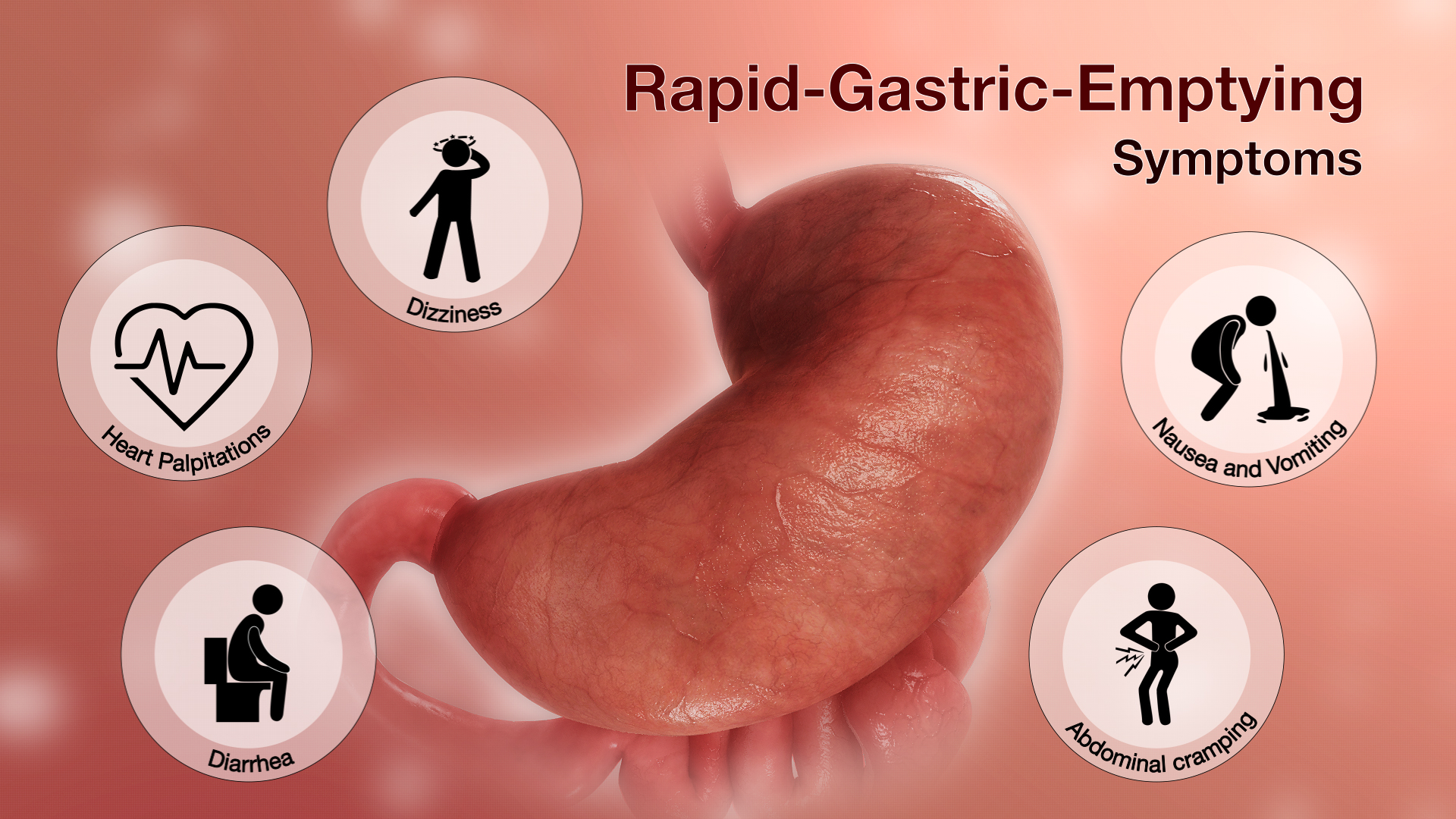Rapid gastric emptying is also known as Dumping syndrome. This syndrome occurs when food moves too quickly from the stomach to the duodenum, the first section of the small intestine. Rapid gastric emptying usually occurs in people who have undergone gastric surgery. There are two phases of this syndrome, early dumping, and late dumping. It is estimated that 75 percent of the people with this syndrome experience early dumping, while 25 percent experience late dumping. Some people may suffer from both the phases, early dumping as well as late dumping.

Symptoms
Symptoms of rapid gastric emptying usually occur between 10 to 30 minutes after having a meal. The most common signs and symptoms are:
- Abdominal cramps
- Nausea
- Vomiting
- Feeling bloated
- Diarrhea
- Dizziness
- Rapid heart rate
- Flushing or reddening of the face or neck
Causes
In Rapid gastric emptying, food, and juices from the stomach move to the small intestine very quickly and in an abnormal and uncontrolled way. This normally happens when there has been a surgery in which the stomach has been altered in any way. Surgeries that alter the stomach can lead to the risk of this condition.o These surgeries are most commonly performed to treat obesity, but could also be performed to treat stomach cancer and esophageal cancer. Gastrectomy, Gastric bypass surgery, and esophagectomy are the types of surgery that could lead to Rapid gastric emptying. However, in some people, this condition may not occur until years after the surgery.
Treatment
In many cases, Rapid gastric emptying resolves on its own within 3 months. Lifestyle and dietary changes are sufficient to relieve the symptoms. These changes are:
- Eating four to six small meals instead of just three large ones
- Chewing food thoroughly to aid digestion
- Consuming high fiber foods
- Cutting out alcohol
- Avoiding foods high in sugar
- Avoiding white bread, pasta, and white rice
- Not drinking water with the meals
- Drinking sufficient water throughout the day but not with meals
- Increase protein in the diet
If the dietary changes do not help relieve the symptoms then medication may be prescribed. An octreotide injection, which is an anti-diarrheal drug, may be administered. This drug can help slow down the emptying of food into the intestine.
In certain severe cases where neither dietary changes nor medicines help, surgery may be prescribed to relieve the symptoms of this condition.
Around 1 out of 10 people who go through stomach surgery get affected by rapid gastric emptying. This syndrome is most common after gastric bypass bariatric surgery. Early dumping is more common than late dumping and a few people even suffer from both.
Disclaimer: The information in no way constitutes, or should be construed as medical advice. Nor is the above article an endorsement of any research findings discussed in the article an endorsement for any of the source publications.








